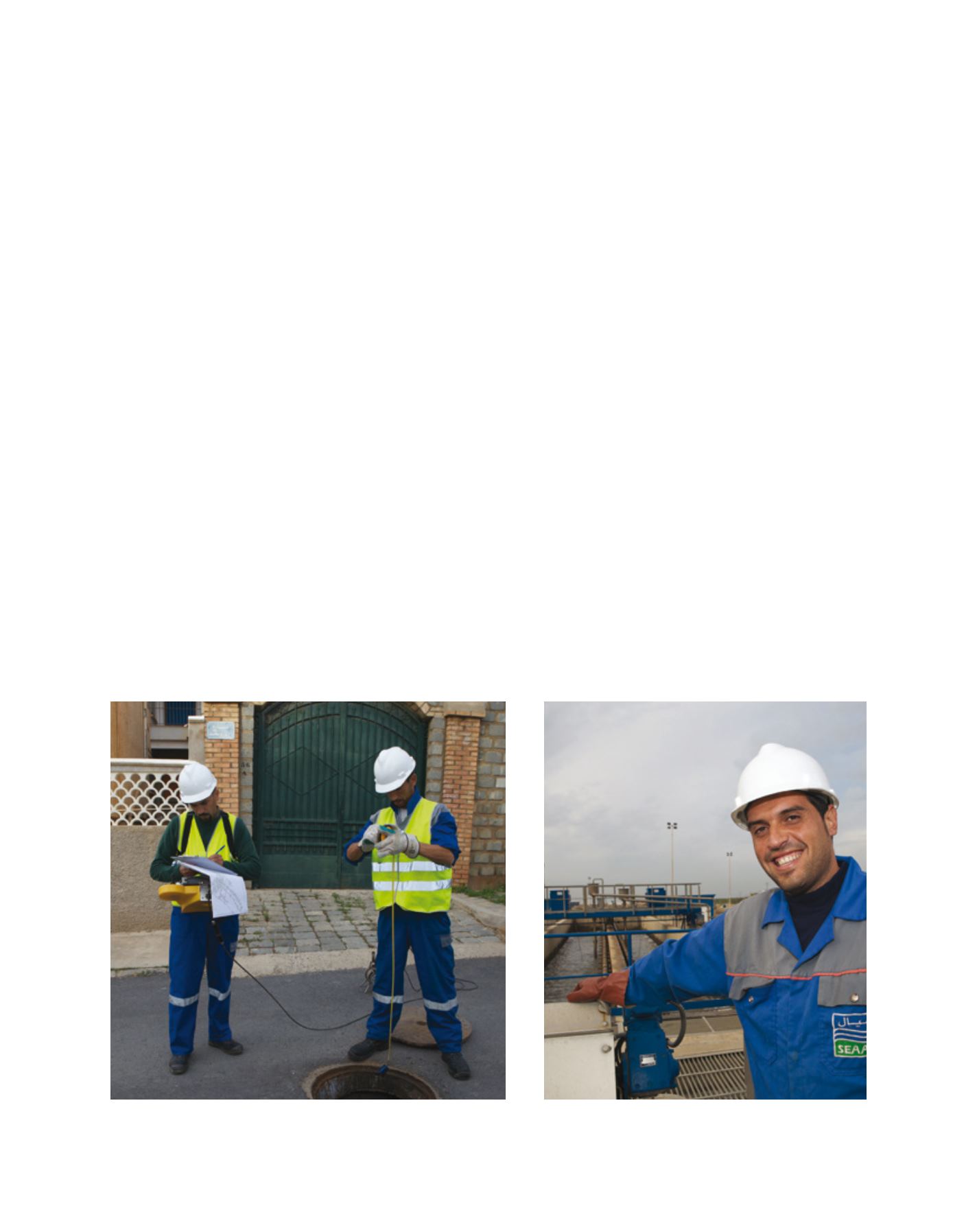

[
] 234
W
ater
C
ooperation
, S
ustainability
and
P
overty
E
radication
network, which restricted the amount of water that
could be provided. Moreover, the bay of Algiers was
polluted: sewers weren’t maintained, and wastewater
pumping stations and treatment plants were either still
under construction or being renovated. This resulted in
only six per cent of wastewater being treated.
To deal with this situation, the Algerian public authori-
ties decided to implement a national water management
strategy. The objective was to improve the population’s
water supply, redevelop the sanitation system and encour-
age waste reduction, beginning with Algiers in 2006 and
then moving onto the country’s other main cities in 2008
–Oran, Constantine and Annaba. The Algerian authori-
ties were commited to maintaining water and sanitation
as public services. The tariff, fixed at national level, has
not been changed since 2006. Socially sustainable, it is
progressive to discourage wasting water and with a social
tariff addressing low-income households.
Suez Environnement and the Algerian state worked
closely together to evaluate the situation and develop
an action plan that met objectives. Water authorities,
including the Algérienne des Eaux (ADE) and the
Office National de l’Assainissement (ONA), created
the Société des Eaux et de l’Assainissement d’Alger
(SEAAL), the public Algerian company that would be
responsible for overseeing all water and wastewater
services across Algiers and Tipaza. To ensure SEAAL
could handle this responsibility, it was allocated
significant public funding and human resources. The
authorities also signed a five-and-a-half-year manage-
ment contract with Suez Environnement. In 2011, this
was renewed for a further five years (2011-2016).
dialogue around water and sanitation issues, holding regular
consultation meetings to improve corporate strategy and better
meet the expectations of society.
Sustainable water management
As part of its vision to promote access to water, sanitation, wastewa-
ter treatment and waste management in developing countries, Suez
Environnement has adopted a new approach to setting up contracts
with public authorities. To ensure more successful outcomes, the
group has developed more flexible contractual models, which allow
the parties involved to work on initiatives that are best suited to local
requirements and specifically meet local environmental challenges.
By allowing them to develop tools, processes and methodologies
that work specifically for local communities, they are more likely to
engender trust, promote awareness, transfer knowledge and achieve
long-term success.
Management contracts, such as those that Suez Environnement
has signed in Algiers, Algeria; Jeddah, Saudi Arabia; Johannesburg,
South Africa; and Amman, Jordan, clearly illustrate the development
of this new strategy. In short, it requires two parties to commit to a
precise action plan and then deliver on it. This involves setting up a
local training team to share Suez Environnement’s expertise, working
with the community to roll out a jointly-defined programme, ensur-
ing public investments are made in network modernisation and
expansion, and making a commitment to improve service quality.
The case of Algiers
Before 2006, the majority of the population in Algiers, around
3.2 million people, did not have reliable access to drinking water.
Sometimes running water was available for just a few hours per day
or a few days per week. The main causes of this were an insufficient
water supply, obsolete infrastructures and serious leaks in the water
By sharing its expertise with SEAAL workers, Suez Environnement is helping to
empower the Algerian company
One of Suez Environnement’s main objectives is to improve water
sanitation services
Image: Suez Environnement, Krista Boggs
Image: Suez Environnement, Krista Boggs


















